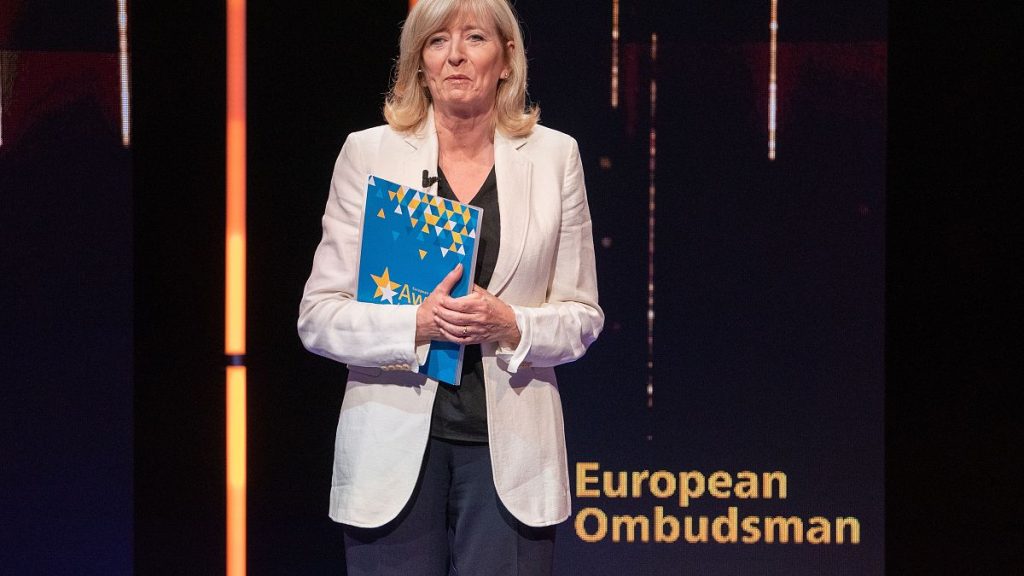On Tuesday, six candidates vied for the position of the European Union (EU) Ombudsman, aiming to secure the trust of Members of the European Parliament (MEPs) in their quest to oversee and investigate any malpractice within the Brussels bureaucratic apparatus. The contenders came from diverse backgrounds, including Austria, Portugal, Estonia, the Netherlands, and Italy, each given over an hour to persuade the European Parliament’s Petitions Committee of their qualifications. This hearing sets the stage for a series of secret ballots scheduled for mid-December in which one candidate will succeed the incumbent Ombudsman, Emily O’Reilly of Ireland, who has held the position for a decade and has been instrumental in addressing maladministration within EU institutions.
Despite the significance of the role, the hearings revealed a surprising lack of concrete policy commitments from the candidates. Hours of discussions yielded little in terms of definitive proposals regarding the office’s future direction. One of the candidates, Reinier van Zutphen from the Netherlands, emphasized the growing importance of the Ombudsman in the EU’s system of checks and balances, advocating for the role to convey messages from citizens facing the challenges of EU regulations. Meanwhile, Teresa Anjinho from Portugal highlighted the necessity for reform in the EU’s freedom of information laws, arguing that they are outdated in today’s digital landscape. Italian candidate Marino Fardelli proposed innovative solutions, such as developing a smartphone application for citizens to track their oi cases, as well as pushing for a universal right to cybersecurity. Overall, the candidates’ lack of definitive policy pledges may reflect their desire to maintain continuity, particularly given the favorable reputation of the incumbent Ombudsman.
The backgrounds of the candidates varied significantly, showcasing a blend of experience within and outside EU institutions. Van Zutphen, Anjinho, and Fardelli all showcased their direct experience as national ombudsmen, which positions them as familiar with the intricacies of transparency and accountability in governance. In contrast, Emilio De Capitani presented over 25 years of experience working within the European Parliament and advocating for greater transparency through legal avenues. Julia Laffranque, an esteemed supreme court justice from Estonia, noted her enhanced expertise from her previous candidacy in 2019, offering a more nuanced perspective this time around. Claudia Mahler of Austria maintained that her outsider status could provide a valuable fresh perspective, claiming that it highlights issues overlooked by those deeply entrenched within EU bureaucratic structures.
Despite the apparent neutrality of the Ombudsman’s role, political dynamics in the European Parliament inevitably influenced the candidates’ presentations. MEPs’ political affiliations and the corresponding sway they hold in the election process laid bare the interplay between the supposed impartiality of the candidates and the political landscape of the EU. While some candidates, such as De Capitani, were forthright about their political views, others, like Laffranque, claimed that their broad-based support from multiple political groups reflected neutrality. Conversely, Anjinho faced scrutiny regarding her political ties, as MEPs inquired how her past leadership role within a center-right party would affect her independence in the role, to which she countered by highlighting her experiences in less partisan environments.
As the candidates responded to questions and articulated their vision for the role, language also played a notable role in the hearings. While the majority of candidates opted for English, varying degrees of fluency and communication styles were evident. Fardelli notably chose to present in Italian, a choice that resulted in mixed reactions from MEPs. Other candidates, including Anjinho and De Capitani, endeavored to employ the expected technical language characteristic of EU discourse, albeit occasionally leading to convoluted statements. Laffranque’s answers, while insightful, highlighted the complex relationship between law interpretation and executive accountability. Regardless, the ability to effectively engage with both EU institutions and the average citizen remains a crucial skill for the Ombudsman, stressing the need for clarity and approachability in communication.
The series of hearings highlighted the weight of expectation that accompanies the EU Ombudsman role, particularly in the context of growing public scrutiny towards EU institutions. While the candidates exhibited various strengths, the hearings ultimately indicate the need for the new Ombudsman to not just navigate bureaucratic intricacies but also adapt to the evolving political landscape and the pressing demands of European citizens. Such a role not only requires investigatory skills but also an understanding of the changing dynamics within the EU and the ability to communicate effectively with constituents who feel affected by EU policies. In this respect, the candidates’ presentations and their proposed reforms suggest they are well aware of the complexities that lie ahead in balancing neutrality while advocating for citizens’ rights.
The selection of the EU Ombudsman will undoubtedly bear implications for the institution’s ability to foster transparency and accountability in its actions. These hearings represented an essential first step, allowing candidates to showcase their qualifications while resonating with MEPs who will elect the next Ombudsman. With the final election set for mid-December, the choice made by the Parliament will reflect not only individual competency but also an affirmation of the direction in which the EU wishes to progress, further underscoring the intersection of policy, politics, and public concerns within this vital role. As the candidates move forward, their ability to unite these components and lead the office with a vision for reform and clarity will be critical in addressing the pervasive sentiment of detachment felt by many European citizens regarding their engagements with the EU bureaucracy.














